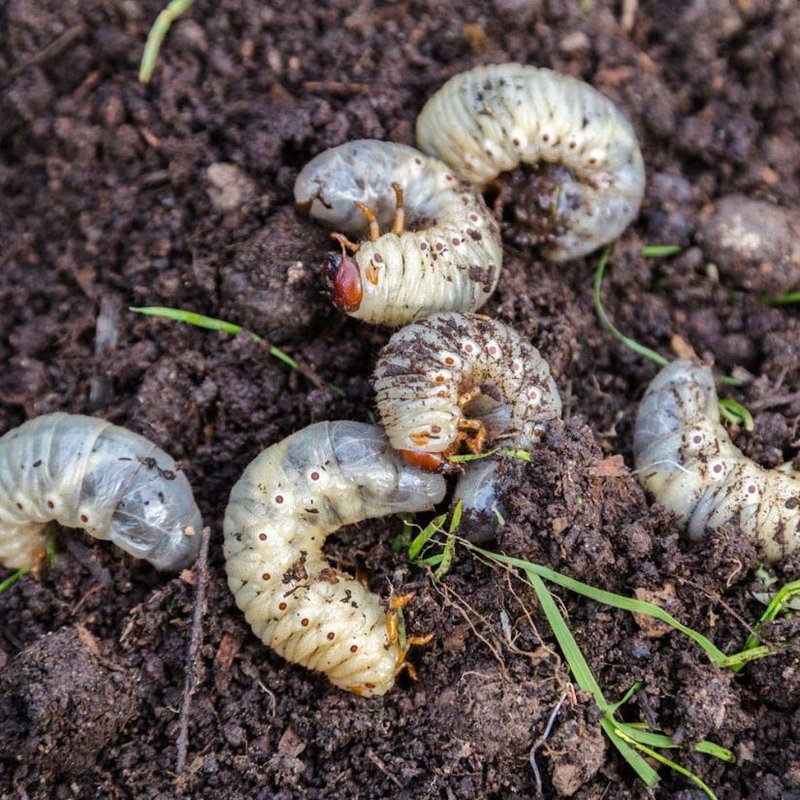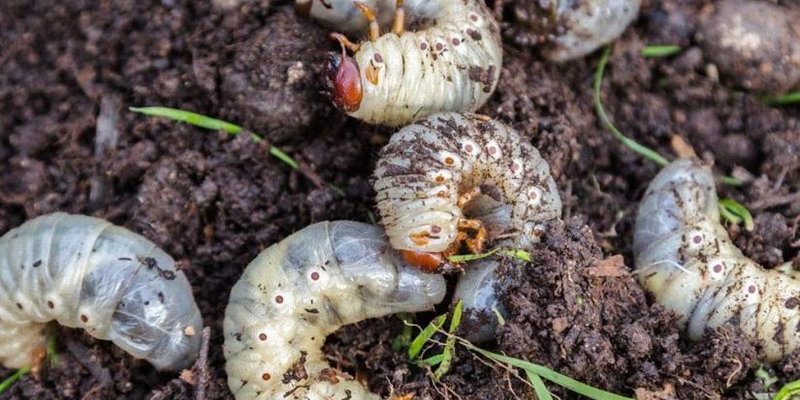
Grub worms, specifically the larvae of beetles, might not win any beauty contests, but they’re essential players in the great game of life on Earth. Picture a bustling city where every resident has a job that keeps the place running smoothly; that’s what grubs do for the soil and the wider environment. They might be small, but their impact is substantial, leading us to a fascinating question: Are grub worms beneficial in any ecosystem? Let’s explore this idea by looking at their roles and benefits.
What Are Grub Worms?
Grub worms are the larvae of various species of beetles, mainly belonging to families like Scarabaeidae and Melolonthidae. While they usually start their lives as eggs laid in the soil, they soon emerge as these little wrigglers often white or light brown in color. Depending on the species, grubs can grow to be quite large, sometimes as big as a finger!
Here’s the kicker: grubs can be found in various habitats, from lawns and gardens to forests and meadows. They tend to thrive in moist environments because they need water to survive. As they grow, these larvae feed on decaying plant matter, roots, and organic materials, converting it into rich nutrients that future plants can use. This process is essential for maintaining soil health.
The Role of Grub Worms in Soil Aeration
One of the most critical benefits of grub worms is their role in soil aeration. While they burrow through the soil, they create small tunnels that allow air, water, and nutrients to circulate. Imagine a crowded subway system, where everything gets jammed up. Grub worms act like the maintenance workers who clear out the lines, ensuring a smooth flow for everyone.
Without adequate soil aeration, roots struggle to take in oxygen and other vital elements, which can stunt their growth. Grubs help make sure the soil isn’t compacted, promoting better root health for plants. This is especially important for farmers and gardeners who want their crops to thrive.
Additionally, the presence of grubs indicates healthy soil. If you notice them in your yard or garden, it’s a sign that your soil is rich in organic matter and is capable of supporting a diverse ecosystem.
Grubs as Nutrient Recyclers
Grub worms play a vital role in nutrient recycling within ecosystems. As they feed on decomposing matter, they break it down into simpler forms that can be reused by plants. Think of them as nature’s composters, speeding up the process of decomposition. This cycle ensures that nutrients are never truly wasted.
When grubs eat organic material, they don’t just consume it; they also enrich it with their waste, which is packed with nutrients like nitrogen. This waste is a natural fertilizer that enhances soil quality. As grubs break down organic matter, they help convert it into humus, the dark, nutrient-rich material essential for healthy soil.
Moreover, as they burrow and feed, grubs help create a balanced ecosystem. They provide food for numerous predators like birds, mammals, and other insects, forming a crucial link in the food chain. Without them, many species would struggle to find nourishment.
Grubs and Pest Control
You might be surprised to learn that grub worms can also help with pest control. While they are often seen as pests themselves, the reality is that not all grubs will harm your plants. Some species help keep other harmful insects in check by attracting beneficial predators.
For instance, birds love snacking on grubs! By supporting bird populations, grubs indirectly contribute to controlling other pests that might munch on your garden. This natural balance is essential for maintaining healthy plant life without relying heavily on chemical pesticides.
Here’s a thought: by allowing some grubs to thrive in your garden, you could be setting up a mini-ecosystem where these creatures support the overall health of your plants. It’s like having a natural pest control team right in your backyard.
The Challenge of Overpopulation
Now, let’s not sugarcoat it—grub worms can become a problem if their populations grow too large. When this happens, they might cause damage to lawns and gardens by consuming too many roots. It’s like a party that gets out of hand; eventually, someone has to clean up the mess.
In healthy ecosystems, natural predators usually keep grub populations in check. However, if the balance is disrupted—say, through the use of pesticides or habitat loss—grubs may proliferate unchecked. It’s important for gardeners and homeowners to monitor their populations carefully and take action if necessary.
If you’re dealing with an overpopulation of grubs, organic methods like introducing beneficial nematodes (tiny worm-like animals that seek out grubs) can help get things back under control without harming the environment.
Grub worms may not be the stars of the garden, but they’re essential players in the ecosystem. They contribute to soil health by aerating it, recycling nutrients, and supporting a balanced food chain. While they can sometimes become a nuisance, their overall benefits far outweigh the challenges—when managed correctly.
Incorporating a diverse ecosystem, even with creatures like grubs, can lead to a healthier garden and environment. So next time you come across these little wrigglers, remember that they play a significant role in supporting life. By understanding their benefits, you can learn to appreciate them as valuable contributors rather than mere pests.

